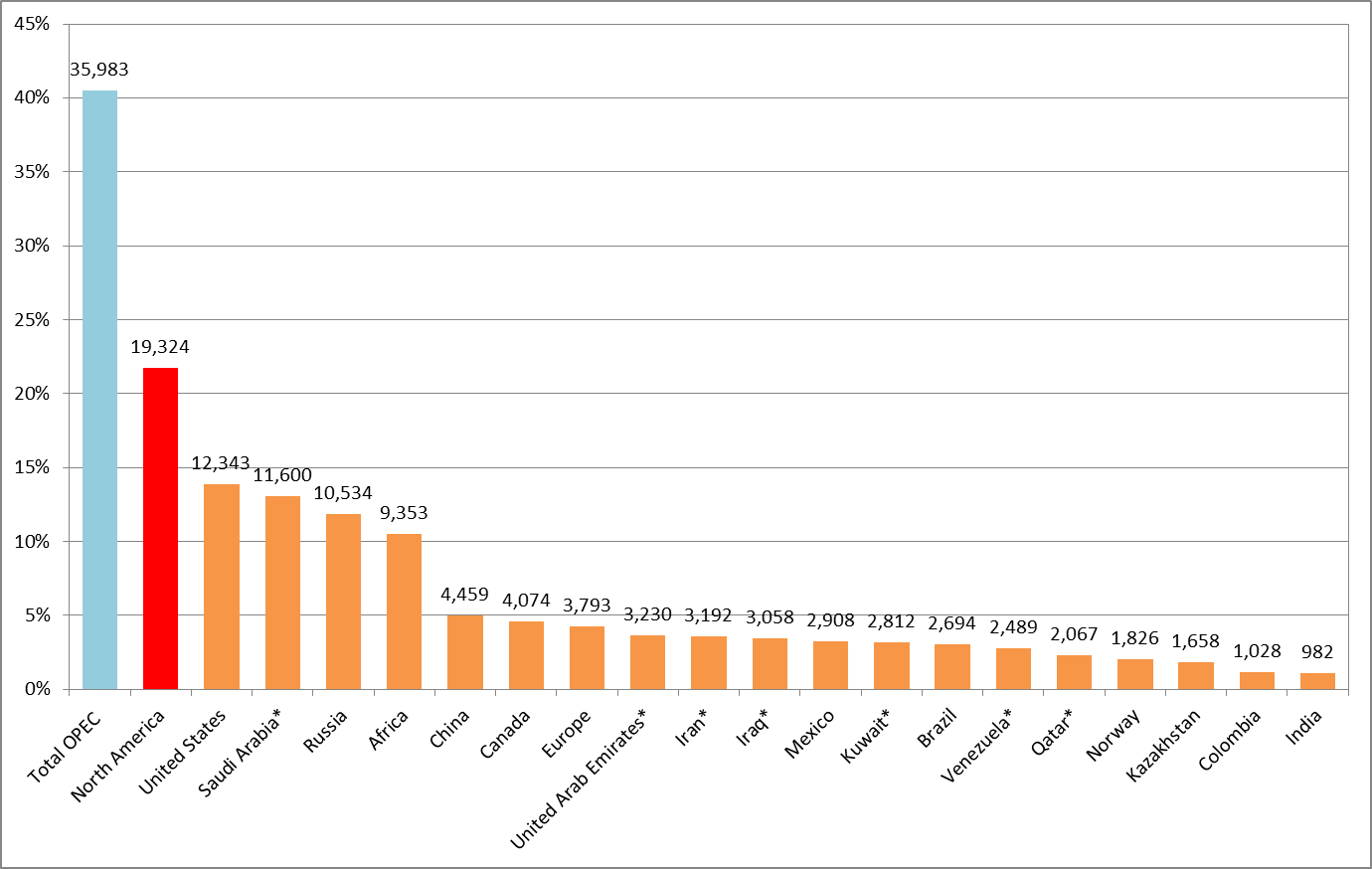Despite President Obama's best efforts to stop it, the energy economy of the United States is undergoing a profound transformation. No one who lived through the Arab oil embargoes of the 1970's would imagine that the United States would, in the 2010's, become the world's largest oil producer—and, in fact, the world's leading energy producer overall. Here's a chart from Oil & Gas 360 listing the world's top oil producers by thousands of barrels of oil per day:

This transformation has been led by private entrepreneurs, like Harold Hamm, who helped pioneer the use of hydraulic fracturing—or "fracking"—to extract America's hidden energy reserves. It's a transformation that has had profound implications for our domestic economy, and also for our relationship with the world. As my Manhattan Institute colleague Mark Mills outlines in his important white paper, Shale 2.0, we are only at the beginning of a technological revolution in energy production that will power the U.S. economy for decades.
Today, Sen. Marco Rubio—whom I'm advising—has put out a detailed energy policy plan, entitled "Powering the New American Century." The goal of the plan is to turn America into the world's undisputed energy superpower. Its core principle is to remove government-erected barriers that are preventing us from achieving even greater innovation in the production of low-cost, sustainable energy.
The plan is divided into three parts. First, Rubio would ensure that we are deploying and developing the resources we already have, by allowing states and tribes to develop energy resources within their borders; approving the Keystone XL pipeline; lifting the ban on crude oil exports and expedite the approval of natural gas exports; streamlining offshore drilling regulations; and other measures.
Second, watch the watchmen. Rubio would create a national regulatory budget that would protect Americans from costly new regulations. He would halt President Obama's carbon mandates, document the economic cost of environmental litigation, and simplify the environmental review process for new projects.
Third, Rubio would reduce barriers to private innovation, through tax reform and education reform, and by getting government out of the business of picking winners and losers among energy-oriented businesses. The federal government has an appropriate role in supporting basic scientific research that is years, if not decades, away from industrial applications. But entrepreneurs should have access to that public research, and it's the private sector, not DOE bureaucrats, who should be identifying the most promising avenues for commercial development.
Not only will these measures make American energy less expensive, they will also make our allies around the world less dependent on energy from Iran, Russia, and other countries that are hostile to our interests.
On the pages of NRO, we often talk about the importance of taking an optimistic tone in politics. But it's just as important to remember that we have reasons to be optimistic. Every American—rich or poor—will benefit from cheaper, more plentiful energy. The private sector is already bringing us there. Smart reforms can finish the job.
Avik Roy is a Senior Fellow at the Manhattan Institute and the Opinion Editor at Forbes.